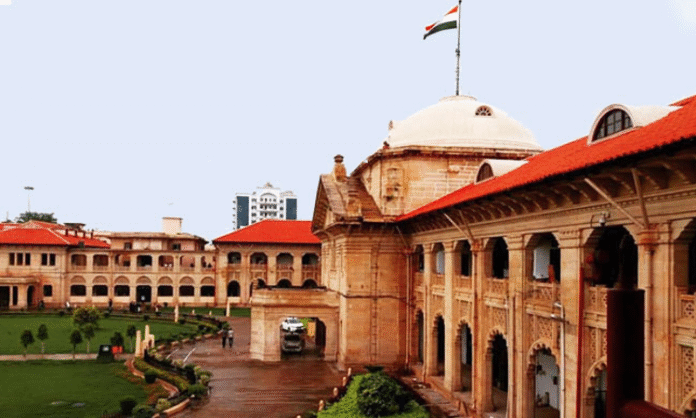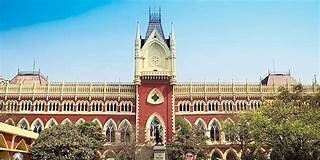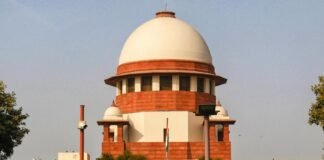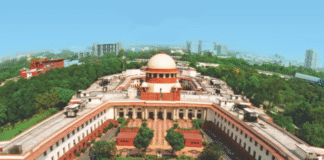88 years later, a Nawab’s deed returns to court—and costs Waqf Board ₹15,000.
New Delhi – In a significant judgment, the Allahabad High Court has imposed a penalty of ₹15,000 on the Uttar Pradesh Shia Central Waqf Board for concealing material facts while asserting its claim over a private Imambara that once belonged to Nawab Mohammad Hussain Khan in Bareilly. The court termed the Board’s conduct as misleading and unjustified, thereby rejecting its long-standing claim on the property.
The decision, passed on 30 May 2025 by Justice Jaspreet Singh, was rooted in an old legal battle over a Waqf deed dated 27 March 1934, through which Nawab Khan had donated income from 17 shops for maintaining his residential house (kothi) and adjacent Imambara. The court, however, said that the objectives of this Waqf were neither pious nor charitable, making the deed legally invalid as early as 1952, when a civil court in Bareilly had ruled against the Shia Waqf Board.
Suppression of Facts and Misuse of Power
The High Court found that despite this 1952 order—which the Waqf Board never challenged—the Board reappointed Mutawallis (custodians) in 2015 and continued to act as the property owner. The judge noted that “this is a clear case where the Board is guilty of suppression of material facts,” and that such actions “cannot be appreciated” under law.
Interestingly, when the court asked about a previous plea filed in a similar matter, the Waqf Board’s counsel “feigned ignorance,” prompting further judicial criticism.
Legal History Behind the Dispute
After Nawab Khan’s death, his daughter Nawab Anwar Jahan Begum had filed a civil suit to nullify the Waqf deed, arguing that the income from the shops was only used for home repairs—not religious or charitable purposes.
The Bareilly court agreed, declaring the 1934 Waqf illegal. Despite this, in 2015, the Shia Central Waqf Board claimed ownership and appointed joint custodians for the property. This triggered legal challenges from the Nawab’s descendants.
Speaking to the media, Advocate Syed Ali Murtaza, representing Nawab’s great-granddaughter Huma Zaidi, said, “This act was not just illegal—it showed a blatant disregard for judicial authority. Thankfully, the Allahabad HC gave us the relief we were seeking.”
Board’s Argument Rejected
The Waqf Board had approached the High Court under Section 83(9) of the Waqf Act, 1995, contesting the Waqf Tribunal’s 2024 decision that had declared the 2015 appointments void. Their argument was that the 1952 ruling applied only to the 17 shops, not the Imambara.
However, the High Court rejected this, stating that the original findings had clearly held the entire arrangement—including the Imambara—as outside the scope of a valid Waqf.
The court further observed that the Shia Central Waqf Board submitted only an undated document regarding Muharram processions as proof of their religious claim over the Imambara—something the court found unconvincing.
Final Verdict
Citing precedents from the Supreme Court (notably A.V. Papayya Sastry v. State of AP), the Allahabad HC concluded that since the 1952 judgment was never appealed, its findings had become final and binding. Therefore, the board was barred from revisiting the same issues, and the 2015 order appointing Mutawallis was declared impermissible.
The court dismissed the Board’s petition and imposed a cost of ₹15,000, calling it a warning against abusing legal process through concealment and forum shopping.
Key Case Info:
Case: UP Shia Central Waqf Board vs Huma Zaidi
Court: Allahabad High Court
Date of Order: 30 May 2025
Law Applied: Waqf Act, 1995 – Section 83(9)
Judgment Impact: Strengthens checks on Waqf Board’s arbitrary actions
Tags:
Allahabad HC, Explainer, Imambara, Law, Shia Central Waqf Board, Uttar Pradesh, Waqf, Judiciary, Concealment, Suppression of facts, Mutawalli, Waqf Deed 1934
USEFUL LINKS:
Watch more legal insights: YouTube – The Legal Observer




